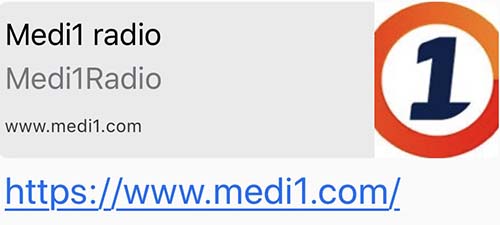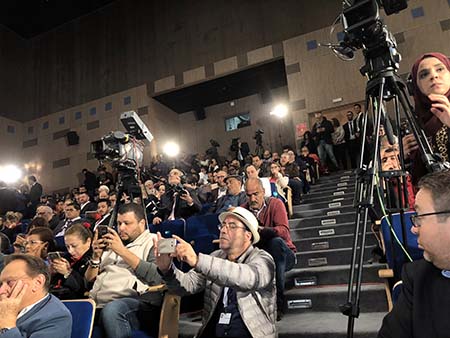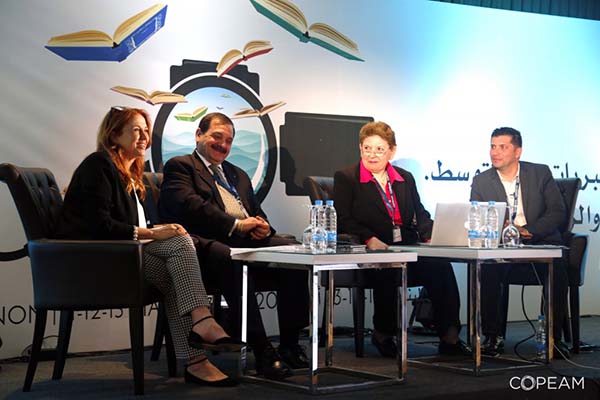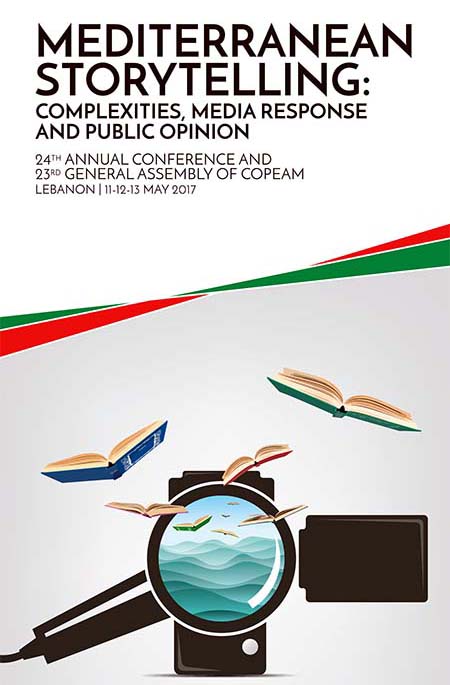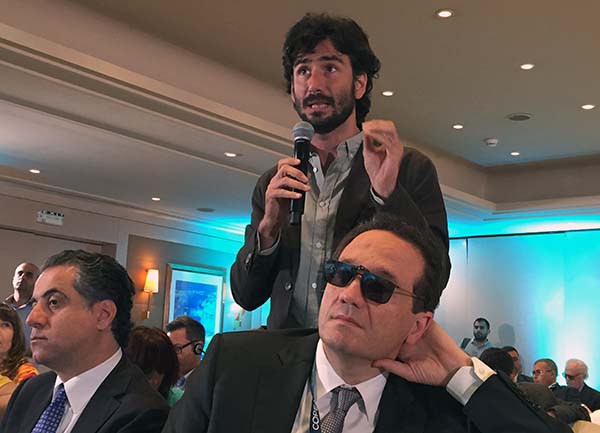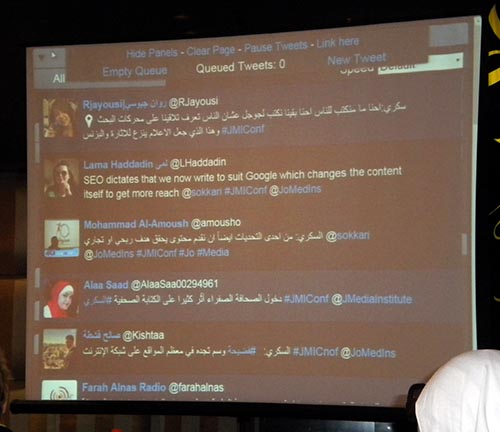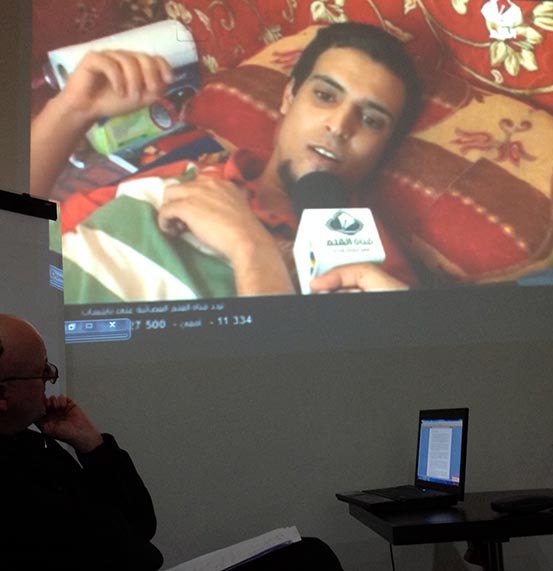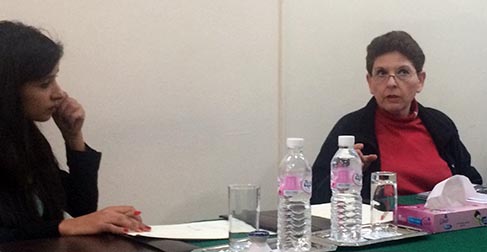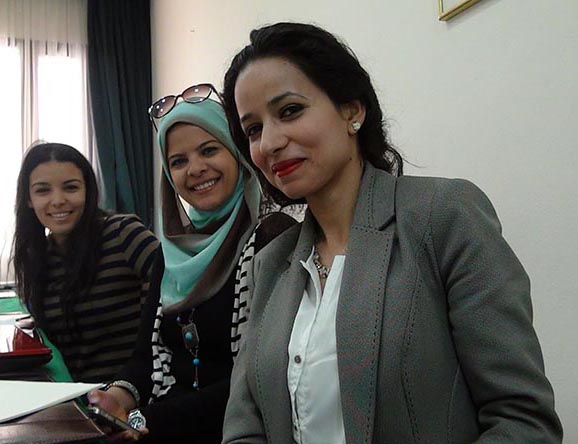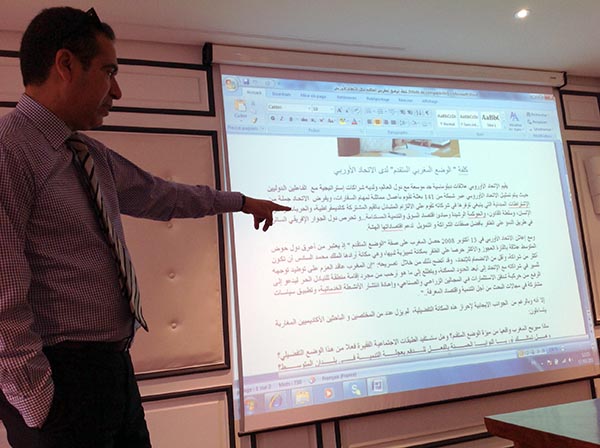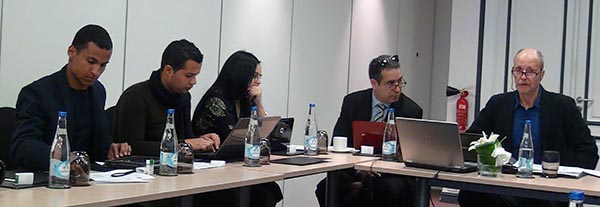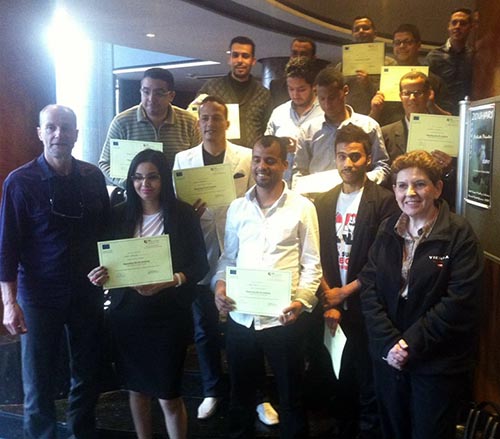Don’t take migration issues lightly, do proper research, never assume, avoid hate speech, stick to the facts, use visuals ethically and tell a good story.
That’s some of the advice Media Unlimited director Magda Abu-Fadil gave journalists at a three-day workshop in Tunis in September 2018 organized by the Open Media Hub, a European Union-funded initiative administered by the Thomson Foundation.

Magda Abu-Fadil explains the ethics of shooting photos and videos of migrants and refugees
The production-led training grouped print, radio, TV, online and multimedia journalists from Tunisia, Morocco, Algeria, Egypt and Syria and provided them with tools aimed at improving their reporting on migration.
Cameraman/editor David Hands, senior media training and exchange expert at the Media Hub Project Petko Georgiev and Abu-Fadil were the instructors.

Migration and media – a complex topic to cover
They aimed to reinforce the journalists’ knowledge and abilities to help them achieve balance in their stories and provide unbiased public perception of migration.
Participants were asked earlier to submit a pitch for the story they intended to finalize during the workshop sessions.
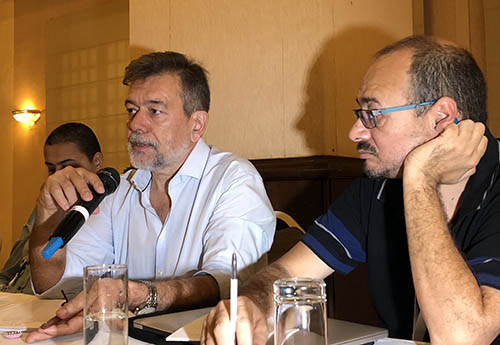
Petko Georgiev, senior media training and exchange expert at Media Hub Project and cameraman/editor David Hands
The stories will be broadcast/published in their respective news outlets and made available on the Open Media Hub’s platform and website, for exchange between participants locally and internationally.
The workshop was built on a text Abu-Fadil wrote, “Migration and Media: A Journalist’s Handbook” – a cooperative project of the Open Media Hub, the International Centre for Migration Policy Development (ICMPD), and Euromed Migration with funding from the EU – that will be available online in English, Arabic and French.

Migration and Media: A Journalist’s Handbook
The handbook was also turned into an OMH online course in the three languages.
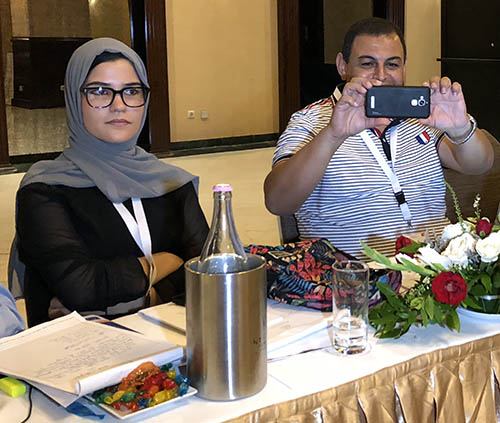
The importance of visuals in media coverage
The objective was to ensure journalists have a basic firm understanding of the complex issues of migration, refugees, and human trafficking and their impact on the politics, economics, demographics, environment, security, education and cultures of affected countries and beyond.
The trainers spent half the workshop mentoring their charges by helping them fine-tune proposals to produce viable reports and provided useful technical tips on video and audio production.

Mentoring journalists on how best to cover the topic
Another hitch is the lack of adequate resources and support from news organizations, so the Open Media Hub has stepped in to help defray the cost of travel and local coverage to journalists pitching credible stories that may then qualify for the EU-funded Migration Media Award (MMA).

EU Ambassador to Tunisia Patrice Bergamini at the Migration Media Award
Several of the workshop participants were winners of the 2018 MMA in its second edition and hope to secure financial backing for follow-up stories.
As a member of the jury for Arabic-language media, Abu-Fadil presented the first prize in print to Egyptian journalist Ibrahim Mustafa whose story “Europe is Not Paradise” was published in the daily Al Akhbar.

Abu-Fadil handing Arabic Migration Media Award first prize in print
The MMA for print, radio, TV and multimedia stories in Arabic, English and French was launched in 2017 to recognize excellence, relevance and newsworthiness of journalistic pieces dealing with migration in all its aspects in the Euro-Mediterranean region.
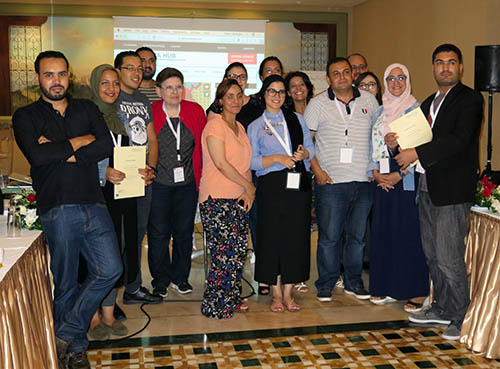
End of a successful workshop
This year’s awards focused on diaspora, labor migration, vulnerable groups, and legal and irregular migration.



